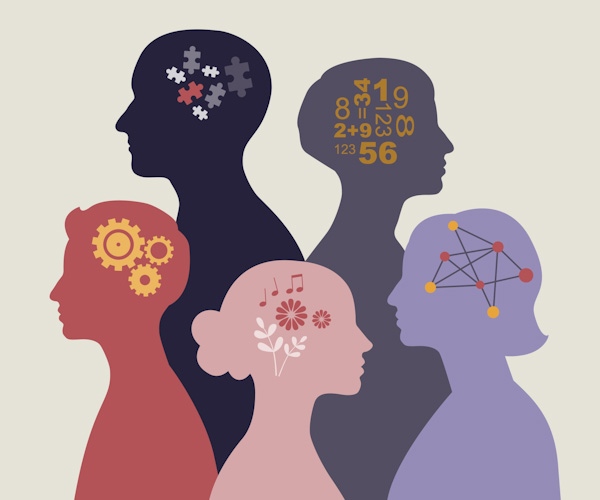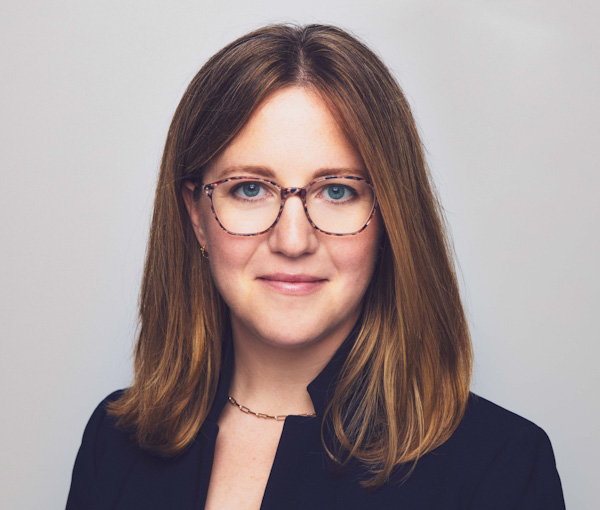BigLaw firm introduces coaching and support for lawyers who have ADHD

According to a 2016 study, 12.5% of lawyers surveyed reported that they have attention-deficit/hyperactivity disorder. (Illustration from Shutterstock)
There are law firms in which Carrie Garber Siegrist, a senior associate in the Washington, D.C., office of Goodwin Procter, might have had to be secretive about her diagnosis of attention-deficit/hyperactivity disorder, also known as ADHD.
But at Goodwin Procter, Garber Siegrist says, she feels embraced and supported. In the past year, the global firm, which has more 1,800 lawyers, launched a series of programs to better understand and provide services for its attorneys who have ADHD, along with promoting an environment in which neurodiverse employees feel comfortable discussing their needs and perspectives.
“One of the most challenging parts about practicing law is the historic stigma and misunderstanding associated with ADHD,” says Garber Siegrist, who counsels tax-exempt organizations. “The support that Goodwin has offered me has been remarkable.”
According to a 2016 study conducted by the Hazelden Betty Ford Foundation and the ABA Commission on Lawyer Assistance Programs, published in the Journal of Addiction Medicine, 12.5% of lawyers surveyed reported that they have ADHD.
That number appears to be significantly higher than adults in the general population. The National Institute of Mental Health estimates that 4.4% of the adult population may have a current ADHD diagnosis.
At Goodwin Procter, the firm partnered with Dixon Life Coaching to provide services to its lawyers who have ADHD and education for other lawyers and staff.
In November 2023, a three-month program called “The Focused Lawyer Coaching Group” was provided by Dixon Life Coaching to 12 Goodwin Procter associates across the country. Participation is a choice—not a condition of employment.
 “One of the most challenging parts about practicing law is the historic stigma and misunderstanding associated with ADHD,” says Carrie Garber Siegrist, a senior associate in the Washington, D.C., office of Goodwin Procter. “The support that Goodwin has offered me has been remarkable.” (Photo courtesy of Goodwin Procter)
“One of the most challenging parts about practicing law is the historic stigma and misunderstanding associated with ADHD,” says Carrie Garber Siegrist, a senior associate in the Washington, D.C., office of Goodwin Procter. “The support that Goodwin has offered me has been remarkable.” (Photo courtesy of Goodwin Procter)
It included virtual group workshops and discussions to help participants determine what they needed to succeed and what steps that they could take to hone their skills and ability to enhance their work productivity, says Casey Dixon, who founded Dixon Life Coaching in 2005.
Another piece of the program was an emphasis on co-working, which involves creating a virtual space for lawyers to connect with each other to first discuss goals and then attend to their individual caseloads while keeping the camera on for accountability. At the end of each co-working session, lawyers unmute their microphones to tell each other what they accomplished.
“The beauty of it is that I am with other attorneys who can share their struggles, challenges and successes. We are all working together at the same time but in our own offices. Co-working allows for accountability without being distracting,” Garber Siegrist says.
In May, the firm is planning to offer a three-month program called “The Focused Professional Coaching Group” for Goodwin Procter’s professional staff who have ADHD.
Since the official programming ended, Garber Siegrist and other participants continue to check in on each other, often twice per day, to offer camaraderie and continue the co-working setup.
Elaine Ventola, Goodwin Procter’s director of career coaching, says in recent years, attorneys increasingly reveal to her that they have ADHD. The firm wants to make sure that its neurodiverse lawyers feel welcome, she adds.
“The goal of coaching is to help attorneys be as effective as possible, but I realized we didn’t have expertise in this area,” Ventola says.
Ventola worked with Goodwin Procter managing directors for diversity, equity and inclusion and total rewards to try to help lawyers who have ADHD. The feedback that Ventola has received from participants in “The Focused Lawyer” group has been overwhelmingly positive, she says.
“They described themselves as feeling way more engaged with their work and having a greater connection to the firm since participating,” Ventola says.
In addition, Dixon Life Coaching is providing Goodwin Procter with informational seminars for staff and partners about how to best support lawyers who have ADHD.
According to Dixon, her clients are about 80% lawyers, with the remainder being other “high-achieving” professionals. The business also offers a monthly webinar series, one-on-one coaching, consulting and online “The Focused Lawyer” groups. It also offers continuing legal education courses at firms, including Stoel Rives and K&L Gates.
Dixon says she focuses on lawyers “because there’s such a need.”
“When lawyers come into our programming, they are often feeling completely overwhelmed with the sense they have a huge amount of tasks on their plate and don’t know what the top priorities should be and how they can get everything done,” Dixon explains. “The coaching approach we use helps them notice and observe what is going on with themselves and then design solutions that will help them.”
When she first started focusing on ADHD coaching, it was a niche industry with few players meeting the needs of neurodiverse professionals, Dixon says. There are more ADHD coaches available now, she adds, and an increasing number of companies are interested in providing coaching and related services for their neurodiverse employees—and particularly those who have ADHD.
Evan Monez, an attorney-turned-coach who is skilled in Dixon Life Coaching’s approach to ADHD, says lawyers who have ADHD have “natural strengths” that help them achieve certain markers of success, such as graduating law school and passing the bar.
But, she adds, they are often privately struggling with executive function challenges, such as prioritization, task initiation, time management, organization and long-term planning.
“Through coaching, I help clients understand their experiences through the lens of ADHD and find ways to work with their ADHD brains instead of against them … so they can spend more of their time and energy focusing on their strengths and the things they love about practicing law,” Monez says.
For Garber Siegrist, knowing that Goodwin Procter is giving her resources has boosted her confidence in work and a conviction that she is working at a firm in which her unique contributions are valued.
“It is inspiring and refreshing to be honest about who I am and to be given options and a community,” Garber Siegrist says.
See also:
“How to best accommodate neurodiverse lawyers and neurodivergent clients”



